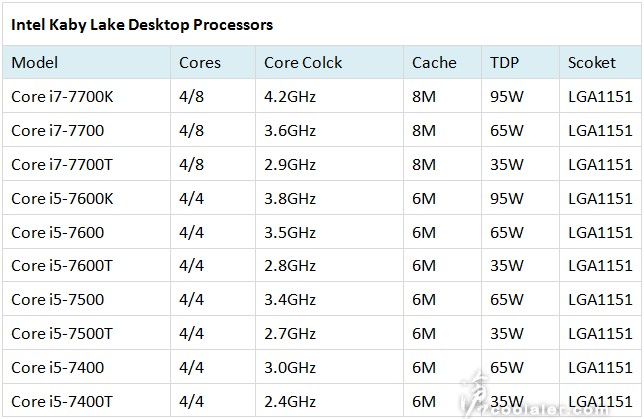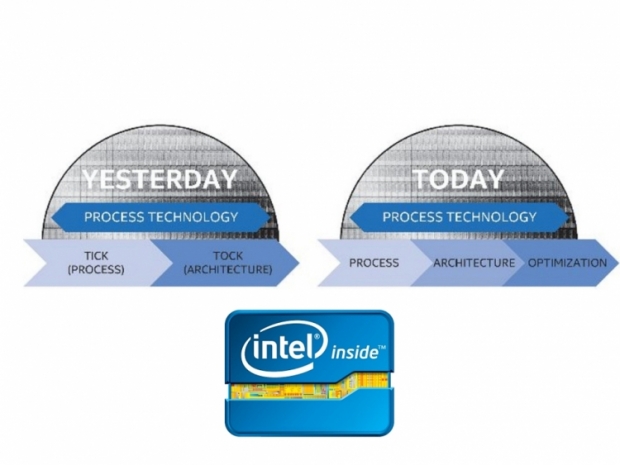There are 10 processors in the list, all quad-core parts with TDPs ranging from 35W up to 95W – and only two unlocked models. The lineup is broken up into three segments – “K” series for unlocked parts, “S” series which means “standard” parts without suffixes, and “T” series which means low-power variants.

Image source: Coolaler.com
Core i7 7700K, Core i7 7700 and Core i7 7700T
At the top of the list is the first unlocked model – Core i7 7700K with a 4.2GHz core clock (4.5GHz Boost), four cores, eight threads, an 8MB cache and 95W TDP. This is followed by two variants, the Core i7 7700 3.6GHz and Core i7 7700T 2.9GHz.
Core i5 7600K, Core i5 7600 and Core i5 7600T
The next unlocked model is the Core i5 7600K with a 3.80GHz core clock (4.2GHz Boost), four cores, four threads, a 6MB cache and 95W TDP. This is followed by two variants, the Core i5 7600 3.5GHz and the Core i5 7600T 2.8GHz.
Core i5 7500, Core i5 7500T, Core i5 7400 and Core i5 7400T
At the bottom of the list are four more models – the Core i5 7500 with a 3.4GHz core clock, the Core i5 7500T with a 2.7GHz core clock, the Core i5 7400 with a 3GHz core clock and the Core i5 7400T with a 2.4GHz core clock.
The main difference on the surface between Kaby Lake and Skylake desktop parts is that the clockspeeds seem to be increased. Architecturally speaking, however, the new design should give at least 5 to 10 percent overall performance improvement based on benchmarks released back in May. The chips will also add native USB 3.1 support, native Thunderbolt 3 support, native HDCP 2.2 support, full fixed-function HEVC main10 and VP9 10-bit hardware decoding. In terms of a release date, the source mentions that Kaby Lake mainstream desktop parts have been slightly pushed to early Q1 2017.
As announced earlier this week at the Intel Developer Forum, the company’s current focus is to bring the new architecture to mobile form factors (4W to 15W TDP) this fall for the various shopping seasons beginning with so called "back to school", before continuing with desktop products in the first quarter of next year.




